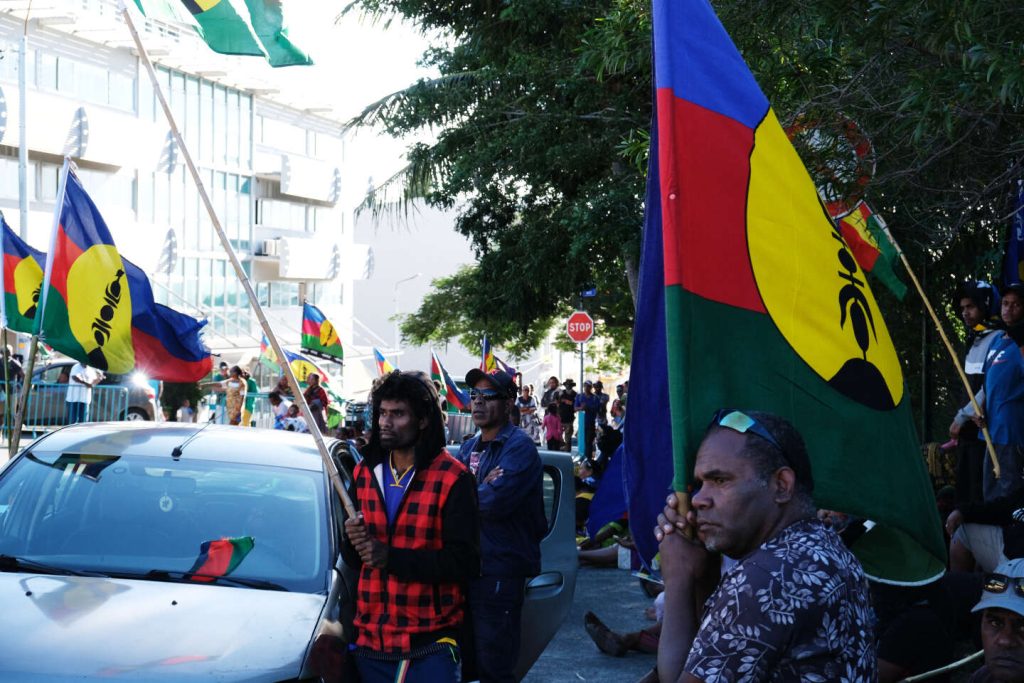In May 2024, a gathering organized by the Field Coordination Cell (CCAT) took place in front of the courthouse in Nouméa to support 14 activists who were accused of obstructing traffic and damaging properties. The Minister of the Interior and Overseas Territories, Gérald Darmanin, strongly criticized their organization, labeling it as “mafia-like.” Suspected of being the “masterminds” behind the violence that has been erupting in New Caledonia since May 13th, members of the CCAT are now under investigation. The CCAT is a relatively new entity, established in November 2023, which has been leading the mobilization against the expansion of the electoral body in the archipelago. Despite facing intense criticism, the organization remains largely unknown.
The CCAT operates within the intricate dynamics of the New Caledonian independence movement, which is not monolithic and consists of both radical and moderate factions. The primary goal of the CCAT was to unify various groups within the movement in order to have a stronger bargaining position during negotiations following the signing of the second Nouméa Accord in 1998. This was seen as the only viable option to counter a government accused by the independence supporters of using forceful tactics. However, achieving this unity has been challenging, as attempts to include other organizations within the Front de libération nationale kanak et socialiste (FLNKS) have failed to reach a consensus. The FLNKS is a coalition of four main parties: the Union calédonienne (UC), the Palika (Parti de libération kanak), the Rassemblement démocratique océanien (RDO), and the Union progressiste en Mélanésie (UPM), excluding other significant pro-independence groups like the Union syndicale des travailleurs kanak et des exploités (USTKE) and the Parti travailliste.
The idea behind the creation of the CCAT was to build the broadest possible coalition to oppose the constitutional reform that aimed to expand the electoral body for provincial elections. Despite initial hesitations from some parties, the UC moved forward with establishing the CCAT in November 2023 during one of its congresses. The core message of the CCAT was to highlight the risks posed by the state’s actions and the potential for a forceful imposition of changes to the electoral system. This message was reiterated throughout peaceful protests, family gatherings, and numerous informational meetings held until early May. The ultimate goal was to mobilize and organize opposition to the governmental reforms.
The CCAT’s formation marked an attempt to integrate various pro-independence movements into a unified body to increase their political leverage. By bypassing the challenges faced by the FLNKS in terms of decision-making power and representation, the UC took the initiative to establish the CCAT as a platform for collective action. The organization has been instrumental in coordinating protests, raising awareness about the government’s actions, and rallying support from different segments of society. However, the recent accusations of violence and property damage have cast a shadow over the CCAT, leading to calls for investigation and scrutiny of its activities. The future of the organization and its role within the New Caledonian independence movement remain uncertain amid ongoing tensions and conflicts.


